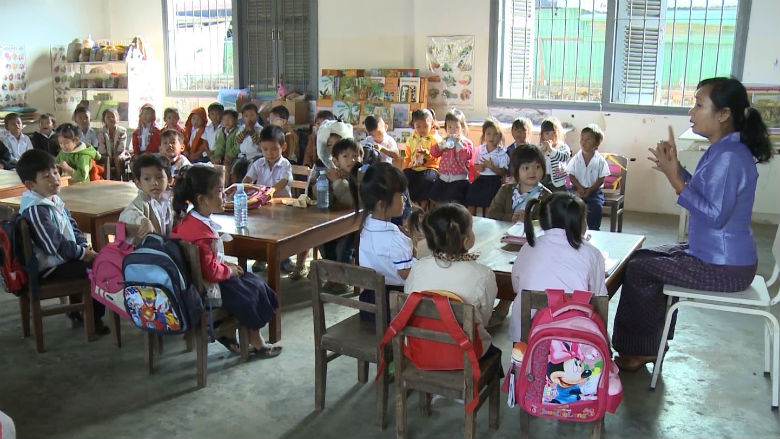Phnom Penh, Cambodia — Many countries struggle with ways to strengthen public service delivery. Cambodia is trying to learn from others – inside and outside of the country – and a recent workshop hosted by the Cambodian Ministry of Civil Service and the World Bank, with participation from the Government of Malaysia, brought new ideas to the surface.
Three key actors – citizens, service providers and policymakers – are critical to improve the quality of public service delivery, notes Inguna Dobraja, World Bank Country Manager for Cambodia.
“Ordinary citizens are in close contact with service providers. The responsiveness of service providers to citizens’ concerns can make a difference to the quality of public service. When citizens voice their concerns to politicians or policymakers, various reform activities can be adjusted and then implemented by service providers,” she said.
Pich Bunthin, Minister of Civil Service, said that the ministry has adopted several regulations to improve public services. However, there is still a long road ahead. He also called for ministries providing public service to work on restructuring their operational management, delegating tasks, providing training to service providers, and developing mechanisms to evaluate and receive service delivery feedback.
Since the 1990s, Cambodia has recorded impressive growth, but this development has been uneven, with large regional inequalities in access and quality of public services. Over 90% of Cambodia’s poor live in rural areas, only 37% of the rural population has access to sanitation, and 44% of rural population has access to clean water. Similar disparities are apparent in education outcomes and health measures.
The Royal Government of Cambodia views improving service delivery as one of its key priorities. Improving service delivery lies at the intersection of three reforms that are currently being implemented in the country. First, decentralization and deconcentration (D&D) reform, more recently referred to as sub-national democratic development (SNDD), is intended to bring decision-making closer to the citizens who use public services. Second, public administration reform (PAR) will provide proper management structure and incentives for service providers. Finally, public financial management (PFM) reform will ensure the distribution and flow of funds for service delivery to the appropriate government units.
About 300 representatives from government institutions—both national and sub-national—working on public service provision as well as development partners and Malaysian government representatives participated in the workshop, sharing their experiences.
Kong Vibol, Director General of the General Department of Taxation, talked about his work on tax collection in Cambodia.



